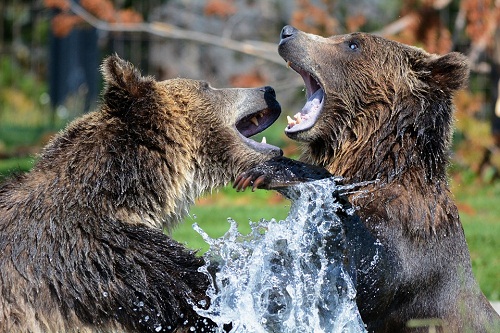A new analysis published in the journal BioScience reveals that over 3,500 animal species are directly imperiled by climate change, signaling the dawn of an “existential crisis for the Earth’s wild animals.”
The study also highlights significant blind spots in our current understanding of climate change’s full impact on global biodiversity.
Led by William Ripple, distinguished professor of ecology at Oregon State University’s College of Forestry, the research team, comprised of collaborators from the US and Mexico, meticulously examined publicly available biodiversity datasets.
Their investigation encompassed data for 70,814 species across 35 existing animal classes, categorizing them by class and assessing climate change risks based on evaluations from the International Union for Conservation of Nature (IUCN).
“Up till now, the primary cause of biodiversity loss has been the twin threats of overexploitation and habitat alteration,” stated Professor Ripple. “But as climate change intensifies, we expect it to become a third major threat to the Earth’s animals.”
A concerning finding of the study is that at least one-quarter of species in six distinct classes – including arachnids, chilopodans (centipedes), anthozoans, and hydrozoans (marine invertebrates related to jellyfish and corals) – are already facing direct threats from a warming climate. While other classes show smaller percentages of at-risk species, the cumulative impact is substantial.
Invertebrates, particularly marine species, are a major concern. “We are particularly concerned about invertebrate animals in the ocean, which absorbs most of the heat from climate change,” Ripple explained. “Those animals are increasingly vulnerable because of their limited ability to move and promptly evade adverse conditions.”
The study outlines the devastating effects of extreme weather events on animal communities, which manifest as mass mortality. Ripple pointed to examples such as the 90% reduction in mollusk populations along Israel’s coastline due to escalating water temperatures,and the deaths of billions of intertidal invertebrates during the 2021 Pacific Northwest heat dome.
Mass mortalities are not confined to invertebrates. The researchers cited the starvation of approximately 4 million common murres off the west coast of North America in 2015 and 2016, a result of an altered food web caused by an extreme marine heat wave.
The same heat wave led to a 71% decline in Pacific cod populations and is believed to have contributed to the deaths of roughly 7,000 humpback whales in the North Pacific.
A critical takeaway from the analysis is the alarming lack of information regarding climate change risk to wildlife. A staggering 66 out of 101 wildlife classes have not had any species assessed by the IUCN for climate change vulnerability.
Furthermore, the 70,814 species assessed in the study represent a mere 5.5% of all described wildlife species alive today.
“Our analysis is meant to be a preliminary effort toward assessing climate risk to wildlife species,” Ripple said. “Understanding the risk is crucial for making informed policy decisions. We need a global database on mass mortality events due to climate change for animal species in all ecosystems, and an acceleration in assessing currently ignored species.”
Ripple also highlighted the existing bias in the IUCN Red List of Threatened Species towards vertebrates, which constitute less than 6% of the Earth’s named animal species. He called for more frequent climate risk assessments across all species, better consideration of adaptive capacity, and the global integration of biodiversity and climate change policy planning.
Partial funding for the study was provided by Roger Worthington, an attorney in Bend, Oregon.
Collaborators included Christopher Wolf and Jillian Gregg of Terrestrial Ecosystem Research Associates, and Erik Torres-Romero of the Biotechnology Engineering-Polytechnic University of Puebla in Mexico.
